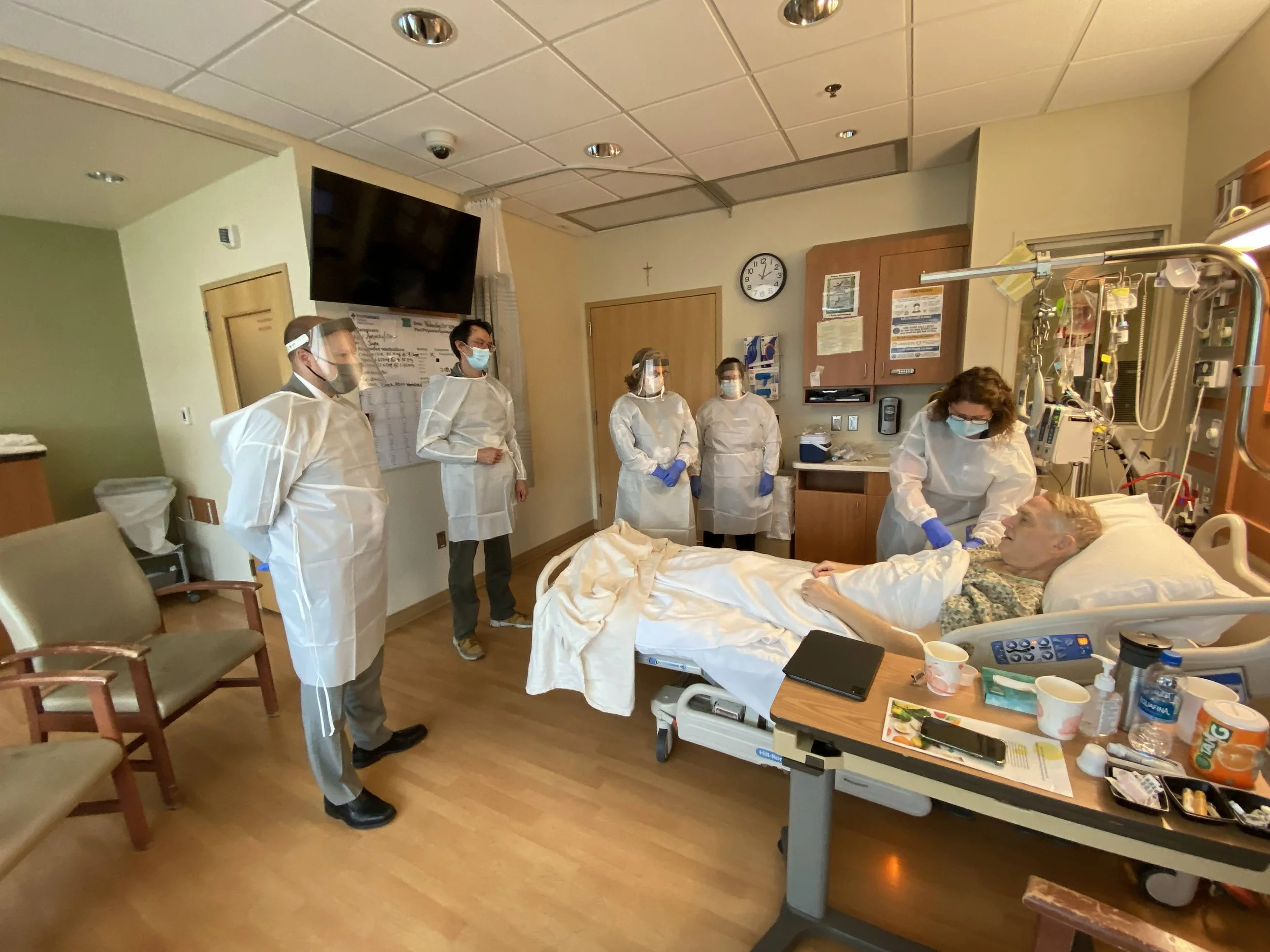
Providence Cancer Institute’s Dr. Matthew Taylor is on the brink of innovation in battling cancer with an approach that Mark Hornibrook believed might have saved his own life and could be the key to saving so many more in the future.
Meet Dr. Matthew Taylor
Dr. Matthew Taylor is a medical oncologist and cancer researcher at the Earle A. Chiles Research Institute, a division of Providence Cancer Institute. He specializes in treating advanced skin and thyroid cancers and is conducting clinical trials on new cancer therapies.
Dr. Taylor’s main research focus is on developing new cancer treatments, including a monoclonal antibody to protect immune cells and innovative methods to genetically engineer immune cells. He joined Providence in 2019, after a decade at OHSU where he led the Phase 1 clinical trials program.
Dr. Taylor earned his undergraduate degree in microbiology from Brigham Young University in Utah, obtained his medical degree from Oregon Health & Science University, and completed his residency in Internal Medicine at the University of Washington in Seattle.
-

Research Focus
Dr. Matthew Taylor, M.D., and his team in the Developmental Cancer Therapeutics Laboratory are on a mission to give the immune system a "bulletproof vest." Their research focuses on preventing cancers from hijacking the body's natural processes to kill T cells, which are crucial for fighting infections and tumors.
-

The Role of T Cells
T cells are a powerful component of the immune system, designed to seek out and destroy infections and tumors. However, certain cancers exploit a protein called fas ligand to eliminate these T cells, allowing tumors to grow and spread. Dr. Taylor's work aims to stop this deadly manipulation.
-

Developing New Therapies
To counteract the effects of fas ligand, Dr. Taylor is developing an antibody designed to block the protein. This innovative approach could make immunotherapies for advanced cancers much more effective, by both protecting immune cells and halting the tumor-promoting actions of fas ligand.
Clinical Trials are Underway!
Dr. Taylor's team has already developed a promising drug prototype and has completed toxicology testing. The Phase 1 clinical trial is now underway and will evaluate the safety and efficacy of this new drug in humans, targeting patients with advanced cancers resistant to existing treatments.
A Career in Clinical Trials
With over 13 years of experience in conducting Phase 1 clinical trials, Dr. Taylor finds it deeply rewarding to see new drugs transform patients' lives. This trial will be particularly meaningful, as it will test a drug developed right at Providence Cancer Institute.


